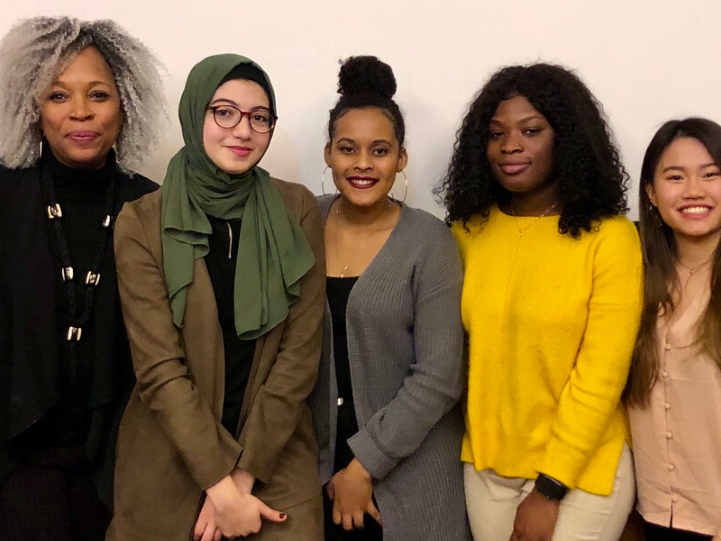
The Big M Question: How to Be A Mindful Mentee
Supporting the Profession Equity, Inclusion and Social Justice AVP or "Number Two" Senior Level VP for Student Affairs
March 3, 2021
All of us want a good mentor – someone who has our best interests at heart and is willing to coach us, praise us and tell us painful truths. We hope for someone who parts the curtain to give us a glimpse of what we should be prepared for at the next level. For people of color and first gens entering new professional spaces, we know that good mentorship is of particular importance. But finding a mentor from a similar background is not always easy, especially if you are looking to those in the C-Suite. I remember approaching a VP at my institution, the only senior black woman administrator on our campus, and asking her to be my mentor. She could not have been more gracious in her response, but I could not help but notice the tension in her face that revealed the thought, "Not another one. Where will I find the time?" I am sure that she had been approached by every mid-level African American woman on campus at some point with the same request.
The Big M question is both flattering and frightening. This is a tough truth for those of us who have reached the C-Suite. Most of us are all for lifting as we climb, but our ability to take on a cadre of mentees is limited. Beyond the rigors of executive work, we start feeling that we have to outperform our colleagues. BIPOC leaders have added unspoken duties of representation that our white counterparts do not have that add to our responsibilities. Those who take mentorship seriously know that it's a commitment to call oneself a mentor, and we worry that we will let our mentees down. This is a concern I often hear from tenure track professors of color. Hungry for minority role models, students flock to them for mentorship and attention, which the faculty love to give. But this takes away from the faculty’s time for scholarship and too often, leaves them without the publications and research they need to ultimately win tenure.
As I progressed in my career, I needed to find another way to get the mentorship I craved without walking around like a baby bird looking for its parent, begging, "Will you be my mentor?" I devised another method I call mindful menteeship or MM. Being a mindful mentee puts the responsibility for mentorship on you. At its heart is simply being mindful of what others have to teach you. Without requesting mentorship, you simply choose individuals in your orbit that you admire and observe mindfully. Perhaps you can have a few things that you are watching for:
- How does this person handle conflict?
- What do they say when they greet people?
- How do people react to them?
An office intern once commented that he noticed whenever someone came to visit me, I would come out of my office to greet them and walk them back to my office. As he sat at the reception desk, he noted how this gesture seemed to make people feel valued and even a little surprised. Students, who are always nervous about visiting with a college administrator, were put more at ease even before we began our conversation. I was not actively teaching how to behave, but he was actively learning, and I suspect that he took that lesson into his own career.
Another thing about mindful menteeing is that you needn't only observe people you admire. A favorite colleague of mine once averred in a meeting "Even a fool can teach you how to not be foolish." Every organization has leaders who have bad reps. Maybe they have a bad temper or are a known gossip. What can you take away through your observations that will keep you from falling into the same trap?
Mindful menteeship can lead to valuable mentorship moments. Having observed your secret mentor, at the right time, you can share with them something that you have truthfully admired. "I really appreciate how you are able to give everyone's voice a chance to be heard at our meetings. How do you do that?" for instance. This is an opportunity to get some focused, direct mentorship. The mentor is flattered by your observation, may be willing to reflect briefly on a focused topic, and their skills are reinforced because they are reminded that others are watching and learning from them. We all need that kind of feedback, no matter how high we are in the organization.
What I love about being a mindful mentee is that you can have one or a dozen mentors, from many backgrounds, levels and experiences. And you will actively learn from them without ever having to scare them away with the big M question. You don't have to idealize any of them, only recognize that there are aspects of their leadership that you want to learn from: some leaders always phrase things just the right way; others are able to get money out of a stone; others are great strategists. MM allows you to see the best in others and make yourself not into a copy of one person, but an authentic leader who is a composite of the qualities you value most.
And finally, when you or that person moves on, there is a wonderful opportunity to bid them goodbye by saying thanks, "You were a great mentor to me." Even if they have no idea that they were your teacher, this is the one of the greatest compliments a person can receive.